'We are living in a sewer': Witdam residents’ six-month nightmare
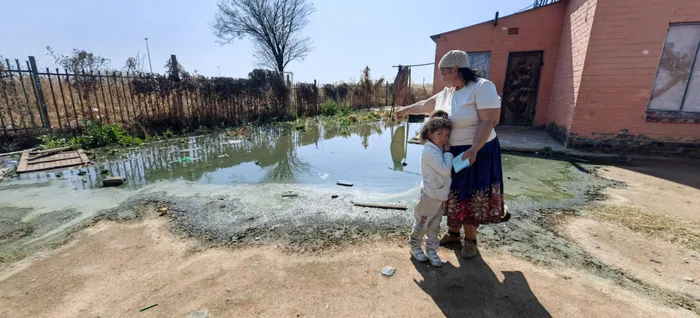
Residents of Witdam in Seochoareng Street, Kimberley, say they have been living with raw sewage for six months despite repeatedly reporting the crisis to the Sol Plaatje Municipality and receiving multiple reference numbers without action. Pictured is Jenifer Nero pointing to sewage in her neighbour’s yard.
Image: Danie van der Lith / DFA
THE STENCH hits before the door even opens. Step outside, and you are greeted not by fresh air or the sound of birds but by the overwhelming reek of raw sewage. It curls into your nostrils, makes your stomach churn, and kills any appetite you might have had. For residents of Seochoareng Street in Witdam, opposite the new Kimberley Academy School, this is not a one-day problem; it has been their life for six long months.
Since February, sewage has been spilling into their yards, turning their homes into disease traps. They have called the Sol Plaatje Municipality countless times, each call rewarded with a fresh reference number, but no action. February brought two reference numbers, March two more, and April the same. By August, the list of unanswered complaints reads like a cruel joke.
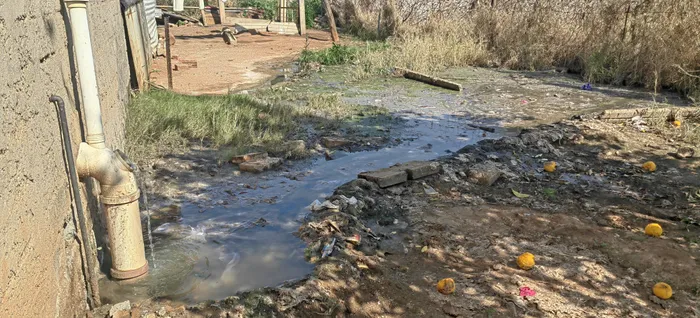
Jenifer Nero has endured sewage flooding in her yard for six months, with no assistance from the municipality in sight.
Image: Danie van der Lith / DFA
“On Monday, the sewage pushed up so badly that it came out of the toilets and flooded my house,” said a furious and exhausted resident, Jenifer Nero. “The manhole in my yard is blocked, and all the sewage is forcing its way up, turning my yard into a dam. We phoned Sol Plaatje Municipality, but this time nobody even answered.
“We are pleading for help. It cannot be healthy for us to live like this. We are not dogs. At least dogs care for their puppies, but clearly, the municipality regards us as less than street dogs. They are quick to beg for our votes, but when we ask for help, we get nothing.”
Nero has resorted to desperate measures. She hired someone to dig a hole in her yard so that when the sewage inevitably gushes up, it has somewhere to flow other than across her home.
Her neighbours are trapped in the same nightmare.
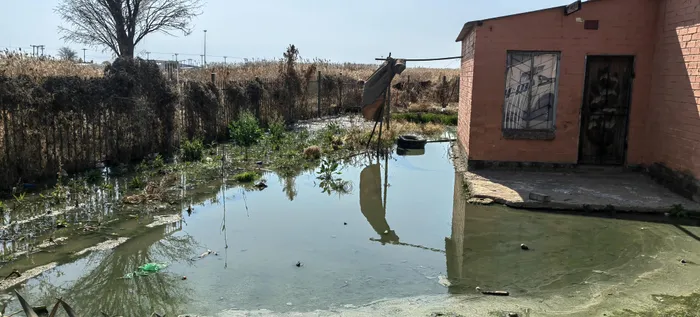
Sewage water has flooded this property for months on end.
Image: Danie van der Lith / DFA
Opposite Nero’s house, another property is so badly flooded that tenants leave within months, unable to endure the conditions. The owner, an elderly man, has seen his only source of income vanish because of the municipality’s inaction.
Next door, Zolile Mdokwana walks across a broken gate just to reach the gravel road without stepping into the muck. In summer, the grass in his yard grew thick and unnaturally green from the nutrient-rich sewage. Winter has left the grass dead, but the ground remains sodden, sucking at shoes and sending the smell of rot into the air.
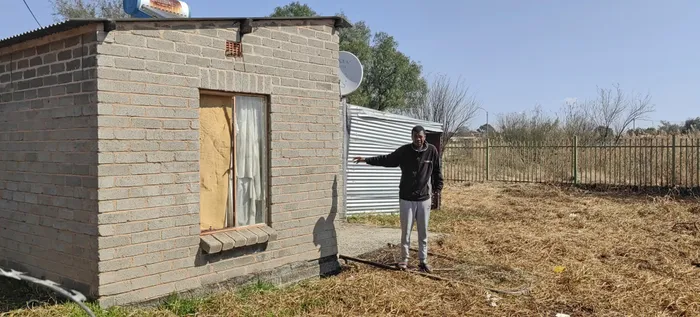
Zolile Mdokwana walks across a broken gate to avoid the sewage-filled ground when leaving his property.
Image: Danie van der Lith / DFA
“This is not just an inconvenience — it is a public health crisis,” residents say.
The law is clear: under the Local Government: Municipal Systems Act, municipalities must provide basic services — and proper sewage disposal is one of them. These services must be delivered in a manner that protects public health, safety, and the environment. But in Witdam, the reality is far from the law’s intent, with residents forced to wade through filth while those responsible allegedly “look away”.
The Department of Water and Sanitation exists to support municipalities in these duties, yet the crumbling infrastructure in Kimberley tells its own story. Sewage spills are left for months, water gushes down roads from leaking pipes, potholes are deep enough to damage vehicles, and streetlights remain unrepaired.
By the time of publication, the Sol Plaatje Municipality had not yet responded to a formal enquiry from the DFA regarding the sewage issues in Witdam. The questions related directly to the concerns raised by residents, who remain uncertain about when the matter will be addressed.
For the people of Witdam, the situation has extended beyond frustration and anger, leaving them with a sense of desperation and the hope that increased attention to their circumstances will prompt action from the relevant authorities. For now, the only certainty in Seochoareng Street is the smell of neglect — and, as one resident asked, “Where is the modern, growing, and successful province we were promised?”
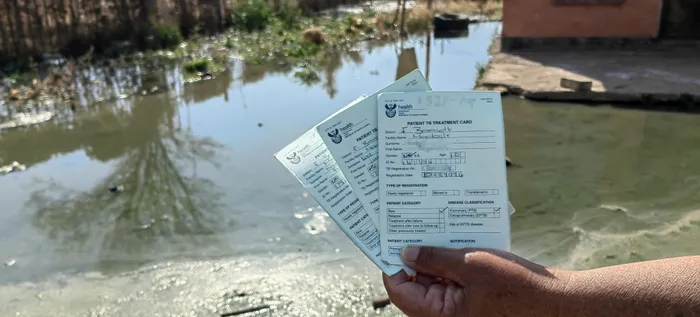
Jenifer Nero displays clinic cards for three children, all diagnosed with pulmonary TB.
Image: Danie van der Lith / DFA